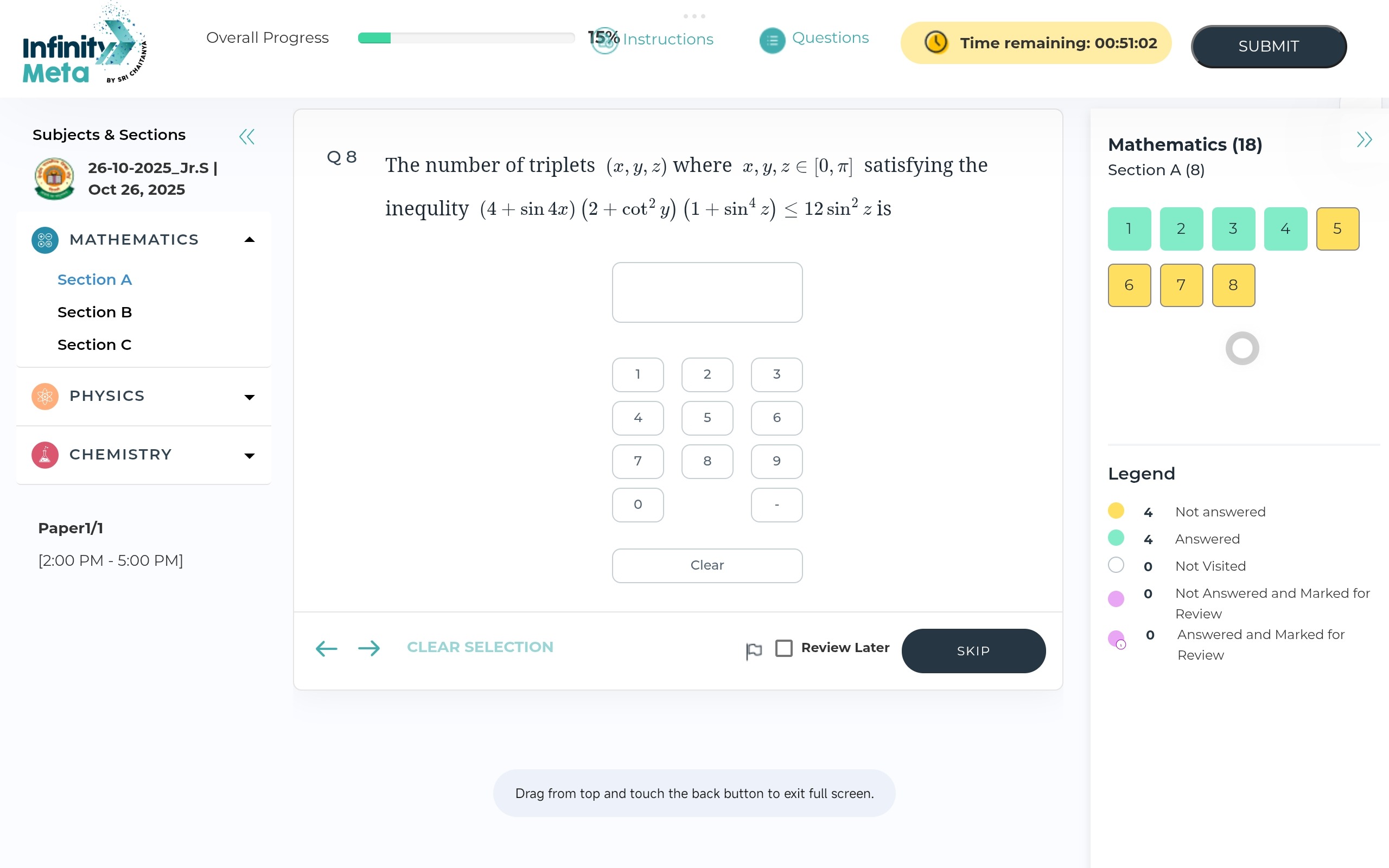Question
Question: The number of triplets $(x, y, z)$ where $x, y, z \in [0, \pi]$ satisfying the inequality $(4 + \sin...
The number of triplets (x,y,z) where x,y,z∈[0,π] satisfying the inequality (4+sin4x)(2+cot2y)(1+sin4z)≤12sin2z is

A
1
B
2
C
3
D
4
E
5
F
6
G
7
H
8
I
9
J
0
Answer
2
Explanation
Solution
The inequality is (4+sin4x)(2+cot2y)(1+sin4z)≤12sin2z. Let x,y,z∈[0,π].
The terms have the following ranges:
- 4+sin4x∈[3,5]
- 2+cot2y≥2 (for y∈(0,π))
- 1+sin4z∈[1,2]
- 12sin2z∈[0,12]
The inequality can be written as: (4+sin4x)(2+cot2y)≤1+sin4z12sin2z.
The left side (LHS) has a minimum value of 3×2=6. Let u=sin2z. For z∈(0,π), u∈(0,1]. The right side (RHS) becomes f(u)=1+u212u. The maximum of f(u) for u∈(0,1] occurs at u=1, giving f(1)=1+1212(1)=6. So, RHS ≤6.
For the inequality LHS ≤ RHS to hold, we must have LHS = 6 and RHS = 6.
LHS = 6 implies:
- 4+sin4x=3⟹sin4x=−1. For x∈[0,π], 4x∈[0,4π]. Solutions for 4x are 23π,27π. Thus, x=83π,87π (2 values).
- 2+cot2y=2⟹cot2y=0⟹coty=0. For y∈[0,π], y=2π (1 value).
RHS = 6 implies:
- 1+sin4z12sin2z=6⟹sin2z=1. For z∈[0,π], sinz=1, so z=2π (1 value).
The total number of triplets is the product of the number of solutions for each variable: 2×1×1=2.
